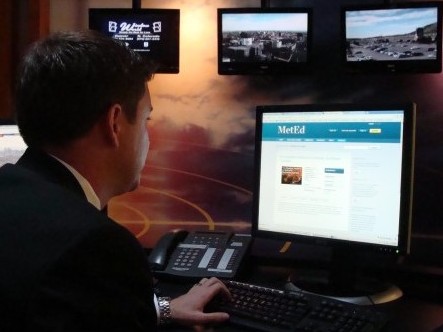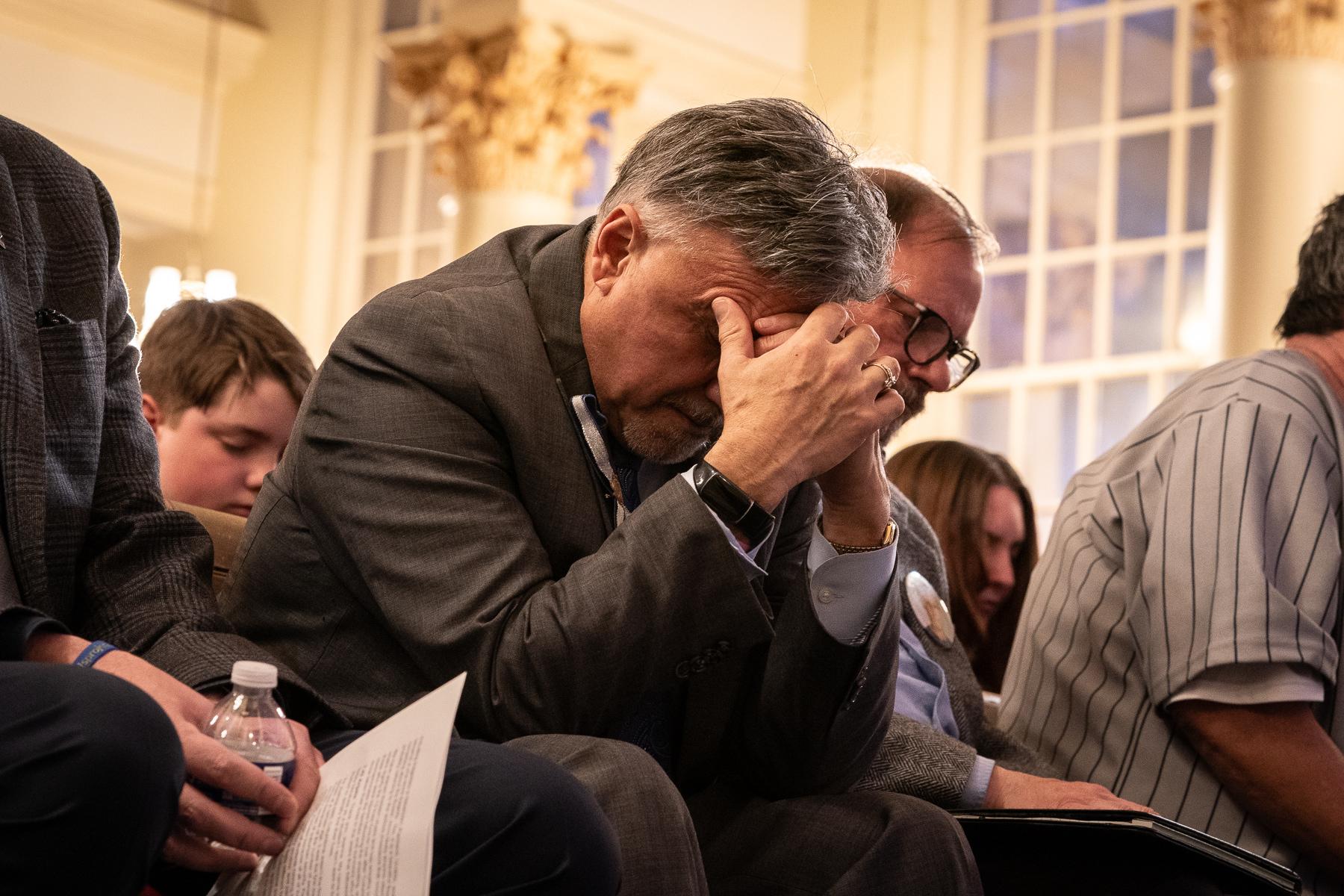
The sweeping federal budget cuts known as sequestration are likely to have some big impacts on our state: defense workers furloughed; shuttered control towers at smaller airports; and federal school grants slashed. But beyond the headlines, the sequester is already being felt in a myriad of ways. CPR’s Megan Verlee reports on how one small, Boulder-based program is trying to adapt in this new era of austerity.
Listen to earlier coverage of the sequester on CPR:
- How Will Sequestration Hit Colorado? (2/28/13)
- Scientists Brace for Sequestration (2/27/13)
[The following is a transcript of Megan Verlee's report]
Reporter Megan Verlee: Unless you’re a meteorologist, air traffic controller, science student, or general weather geek, you probably haven’t stumbled on the MetEd website. It’s a giant online resource for atmospheric science training, funded by various federal agencies. MetEd’s production manager Bruce Muller recently showed me around the site.
Bruce Muller: "What extreme event interests you most?”
Reporter: “Blizzards and winter storms.” [laughter]
Muller: “That’s an appropriate one these days.”
Reporter: The MetEd site has more than 700 hours of training courses, ranging from highly technical classes for meteorologists and emergency managers to more basic stuff for the general public, all completely free.
Muller: "And then there’s a question you’re being asked: is it sustained winds, frequent gusts of 25 mph? 35? 45? 55?”
Reporter: These days, MetEd is experiencing some stormy weather of its own. When the sequester ax fell last month, every government agency started looking for cuts, and MetEd lost nearly half its annual budget. Richard Jeffries runs the program.
Richard Jeffries: "Things that we were planning and supporting and so on and so forth have been delayed a significant amount of time, and now we’re at the point where we’re having to cut service, and we may even have to cut some staff."
Reporter: But while they’ve cut back on developing content, MetEd’s staff did recently add something new to the site: a big yellow “Donate” button. Yes, this public program is hoping users will step up where the government’s left off. Jeffries says federal support was already on a slow decline, but the sequester shoved the program’s budget off a fiscal cliff.
Jeffries: "I don’t believe that MetEd will go away, but in the near term, we need some additional resources to help us bridge through while we re-engineer our business model."
Reporter: MetEd is now trying to make a rapid philosophical shift, from seeing itself as a government-funded resource, to one that relies more on the private sector. Jeffries says that means the site may charge companies to produce specialized trainings and then use those fees to support its public programs. While MetEd’s staff see its current universal accessibility as a virtue, there are some who salute the change.
Amy Oliver Cooke: "They’re thinking outside the box... Good for them."
Reporter: Amy Oliver Cooke is a vice president at the small-government think tank, the Independence Institute. She says MetEd represents the good side of the sequester: government-funded programs are being forced to seek out their markets.
Cooke: "If it’s that important to them, they’ll find the funding. I don’t think taxpayers should have to fund this."
Reporter: Taxpayers, at least those who watch TV news, have been benefiting from the site, though. It’s a crucial training resource for TV forecasters.
TV Broadcast clip: “Hello, I’m meteorologist Matt Makens. We have a big change on the way for this weekend...”
Reporter: Channel Seven Meteorologist Matt Makens noticed when the donate button appeared on the MetEd site, but wasn’t particularly surprised. He says it just reflects a larger trend of cutbacks at the nation’s public science agencies, like the National Weather Service.
Matt Makens: "You know, this is a very small chunk of ice on that huge iceberg that’s the current funding issue in the weather community."
Reporter: And as more programs get chipped from that funding iceberg, users like Makens, and his station, may be asked to pick up the tab for services that were once considered a public good.
[Photo: MVerlee/CPR News]









